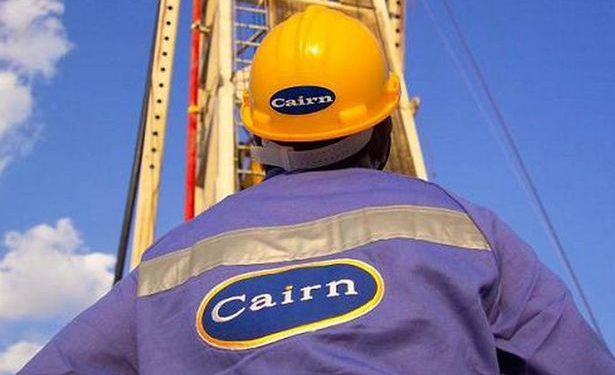New Delhi: India has been ordered to return up to USD 1.4 billion to Cairn Energy plc of the UK after the government lost an international arbitration over the retrospective levy of taxes.
The three-member tribunal, which also comprised a nominee of the Indian government, unanimously ruled that India’s claim of Rs 10,247 crore in past taxes over a 2006-07 internal reorganisation of Cairn’s India business was not a valid demand.
India, it said, “failed to accord the claimants’ (Cairn Energy’s) investments fair and equitable treatment” under the bilateral investment protection pact the nation had with the UK, it said in a 582-page order.
The tribunal ordered the government to return the value of shares it had sold, dividends seized and tax refunds withheld to recover the tax demand. The government was asked to compensate Cairn “for the total harm suffered” together with interest and cost of arbitration, according to the order.
While the order does not contain a provision for challenge or appeal against the award, the government said it will study the arbitration award and “will consider all options and take a decision on the further course of action, including legal remedies before appropriate fora.”
Cairn, according to people aware of the matter, can use the arbitration award to approach courts in countries such as the UK to seize any property owned by India overseas to recover the money if the award is not honoured.
In a statement, Cairn Energy said it had been awarded USD 1.2 billion damages plus interest and costs. Sources said including USD 200 million of interest and USD 20 million of arbitration cost, the total amount payable by the Indian government is USD 1.4 billion (about Rs 10,500 crore).
This is the second loss the government has suffered in three months over the retrospective levy of taxes. In September, UK’s Vodafone Group won an international arbitration against the demand of Rs 22,100 crore in taxes.
However, Cairn was the only company against which the government took action to recover retrospective taxes. During the pendency of the arbitration, the government sold Cairn’s near 5 per cent holding in Vedanta Ltd, seized dividends totalling Rs 1,140 crore due to it from those shareholdings and set off a Rs 1,590-crore tax refund against the demand.
Besides Cairn Energy, the government also slapped a similar tax demand on its erstwhile subsidiary Cairn India (which is now part of Vedanta Ltd). Cairn India too has challenged the demand through a separate arbitration.
In the case of Vodafone, the government took no such action. Confirming the award, Cairn in a statement said: “the tribunal established to rule on its claim against the government of India has found in Cairn’s favour.”
Cairn had challenged the Indian government seeking taxes over an internal business reorganisation using the 2012 retrospective tax law, under the UK-India Bilateral Investment Treaty.
“The tribunal ruled unanimously that India had breached its obligations to Cairn under the UK-India Bilateral Investment Treaty and has awarded to Cairn damages of USD 1.2 billion-plus interest and costs, which now becomes payable,” it said.
Commenting on the issue, Ministry of Finance in a statement said the government will be studying the award and all its aspects carefully in consultation with its counsels.
“After such consultations, the government will consider all options and take a decision on the further course of action, including legal remedies before appropriate fora,” it said. Sources said the government has so far not appealed against the arbitration loss in the Vodafone case and the Cairn arbitration award may hasten a decision on it.
The government, which does not have to pay any monetary compensation to Vodafone, had till December 24 to challenge the award before a court in Singapore – which was the seat of that arbitration.
Cairn Energy, which gave the country its biggest oil discovery, was in March 2015 slapped with a tax demand of Rs 10,247 crore over alleged capital gains it made by reorganising its India unit into a separate subsidiary for listing on local stock exchanges.
Cairn Energy in 2010-11 sold Cairn India to Vedanta but held a small stake in the firm, which was sold by the tax department to partly recover the tax demand.
In September 2020, international arbitration court ruled that the Indian government seeking Rs 22,100 crore in taxes from Vodafone using retrospective legislation was in “breach of the guarantee of fair and equitable treatment” guaranteed under the bilateral investment protection pact between India and the Netherlands.
The government has to reimburse Vodafone 60 per cent of its legal costs and half of the 6,000 euros cost borne by Vodafone for appointing an arbitrator on the panel. Sources said the government of India’s liability came to Rs 85 crore in legal cost.
Vodafone International Holding in February 2007 bought 100 per cent shares of Cayman Island-based company CGP Investments for USD 11.1 billion to indirectly get 67 per cent control of Hutchison Essar Ltd – an Indian company.
The tax department felt the deal was designed to avoid capital gain tax in India and so imposed a tax demand, which was rejected by the Supreme Court in 2012.
To stop abuse and plug the loophole of such indirect transfer of Indian assets, the government in 2012 amended the law to make such transfers taxable in India, they said.
PNN & Agencies






































